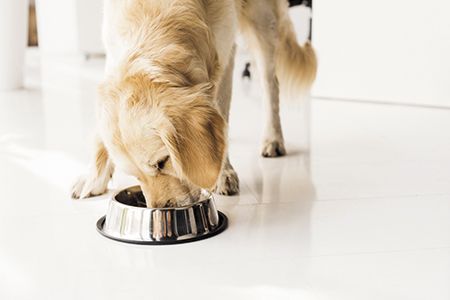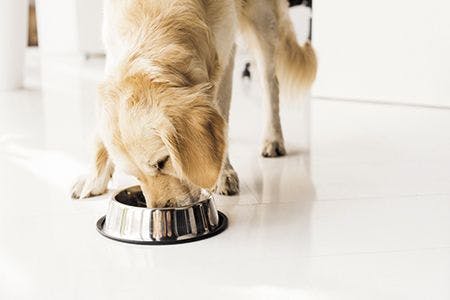Grain-free diets: Whats the hype?
These diets are everywhere and causing controversy in the media lately. Whats the real deal with them?
LIGHTFIELD STUDIOS /stock.adobe.com

Grain-free diets. They're everywhere and veterinary clients are constantly asking if they're a better option for their pets. Let's discuss what these diets are and why your clients want to use them.
Grains are dry seeds harvested from flowering plants with one or two seed leaves. Examples include corn, oats, quinoa, rice, barley and wheat. Some pet owners choose to feed grain-free diets with the idea that dogs and cats evolved eating a limited carbohydrate diet. While this is certainly true for cats, domestic dogs have more genes associated with carbohydrate digestion and metabolism than wolves do. While many pet owners equate grain-free with carbohydrate-free, the reality is grains are simply replaced with other carbohydrate sources like potatoes and legumes (e.g. green peas, chickpeas, lentils).
Many pet owners also hold the misconception that most food allergies are attributable to grains, such as corn and wheat, in the diet. However, meat sources such as beef, dairy, poultry (dogs) and fish (cats) are more likely to be the allergy culprit. While some animals can develop allergies to grains, the treatment of food allergies should happen under the care of veterinarians so pet owners understand how to perform a proper dietary elimination trial.
Recently, there appears to be an association with grain-free diets and development of dilated cardiomyopathy (DCM) in some dogs. However, diet-induced DCM is not limited to grain-free foods and certainly not all grain-free diets have been associated with the disease. In dogs, taurine is derived from the essential amino acids cysteine and methionine. While dogs do not usually have a dietary requirement for taurine, higher dietary fiber and increased concentrations of plant-based protein sources may lead to inadequate concentrations of taurine precursors. There is much that is still not understood about the connection between diet and DCM in dogs, but the formulation of pet foods is a complicated process involving the interaction of many ingredients. Whether a diet contains grains or not, it's important to recommend foods from reputable companies with experienced pet food formulators.
Are grain-free diets superior to traditional pet foods containing corn, rice and oats? The short answer is no. Are grain-free diets harmful? The short answer is probably not, but it may depend on the company manufacturing the diet. When your client asks if a pet should eat a grain-free diet, there is usually not a medical benefit so they may be paying a premium for marketing. However, if an animal is currently thriving on a grain-free diet and the pet owner is happy with the food, I would not push to change their current feeding plan.
Podcast CE: Canine cardiology: the practical guide to the mitral valve patient
July 19th 2023Learn about the prevalence of myxomatous mitral valve disease, guidelines for staging heart disease, proactive diagnostic workup, the importance of spironolactone and aldosterone blocking, and the benefits of combination therapy for improved outcomes in canine patients
Listen


















